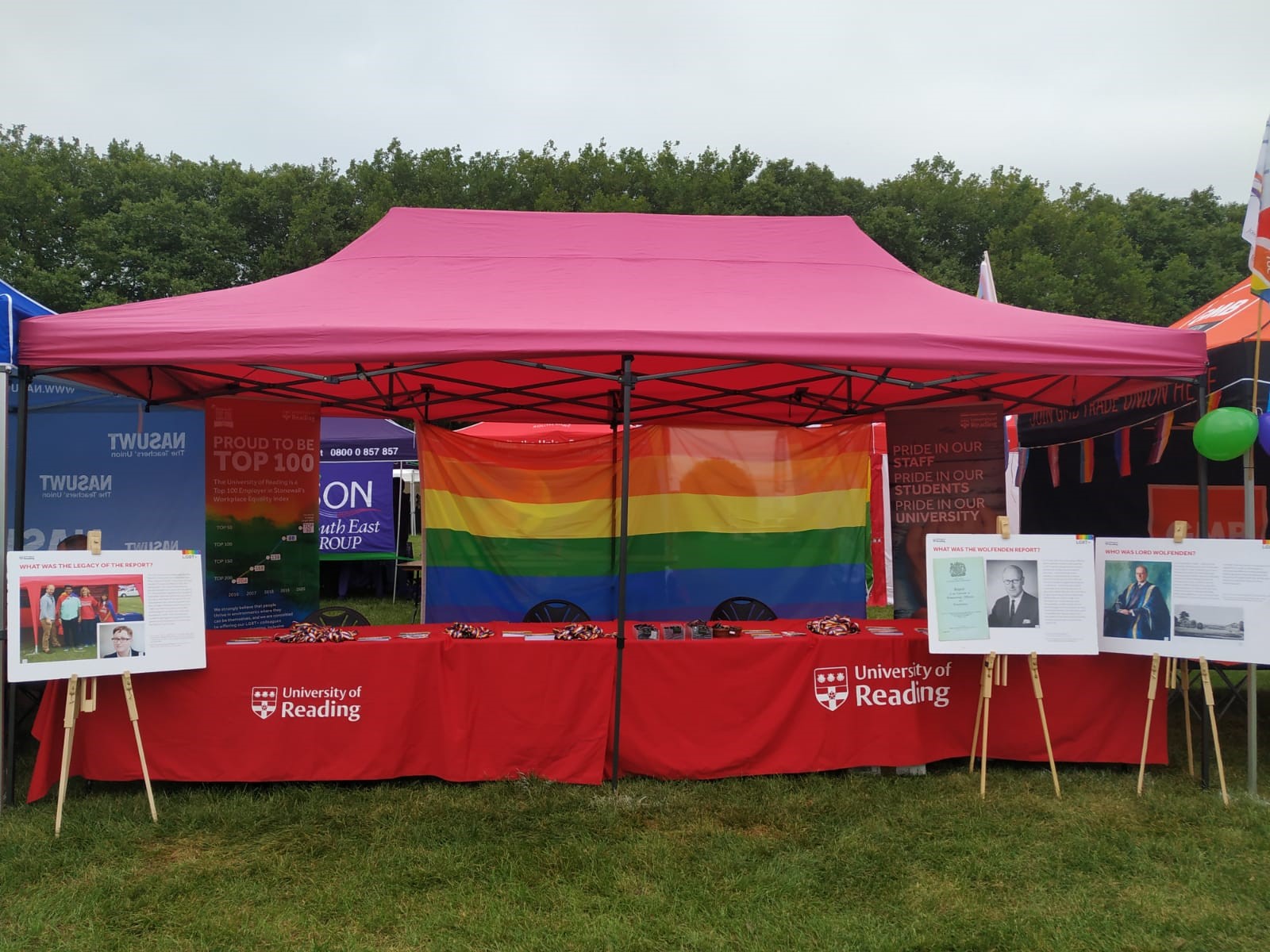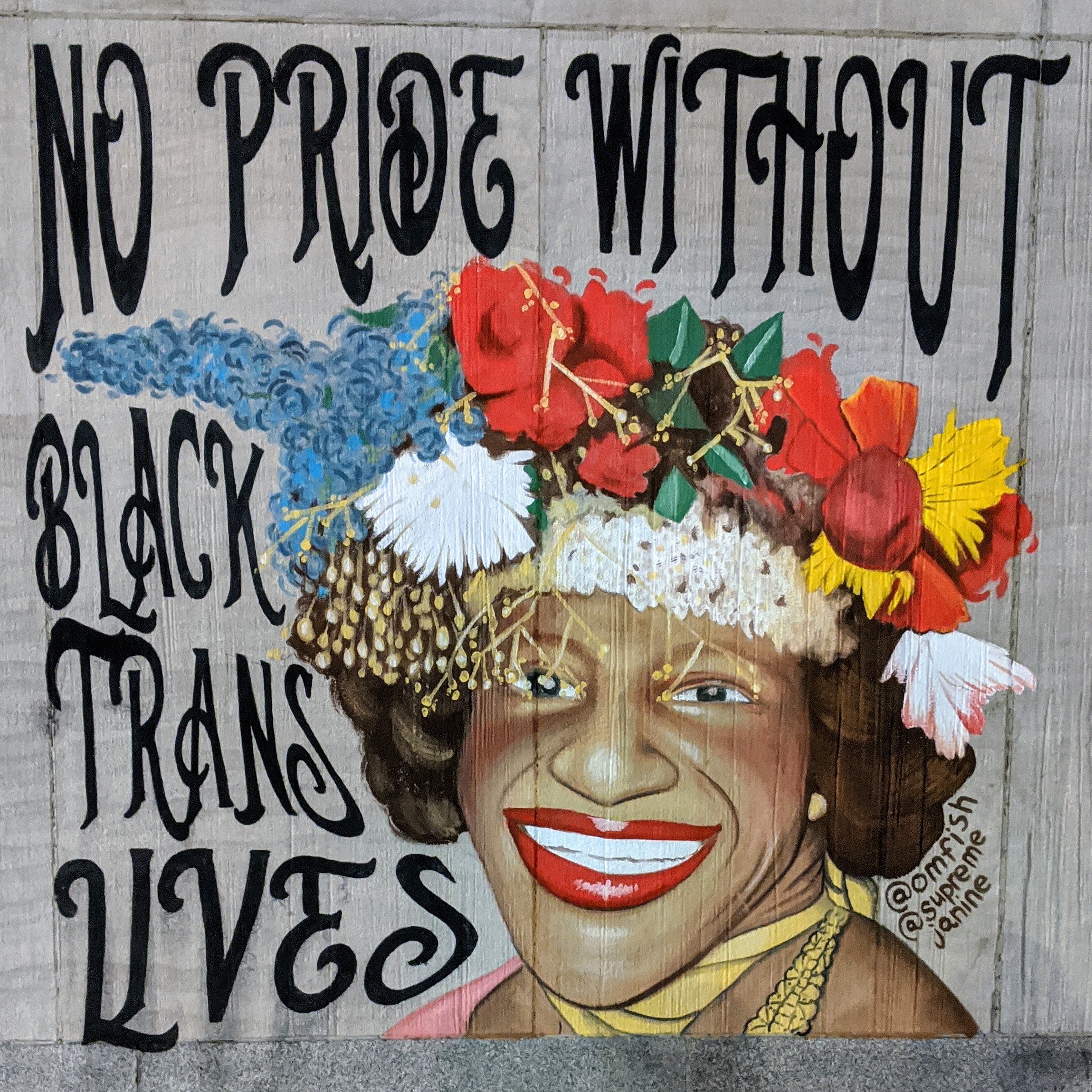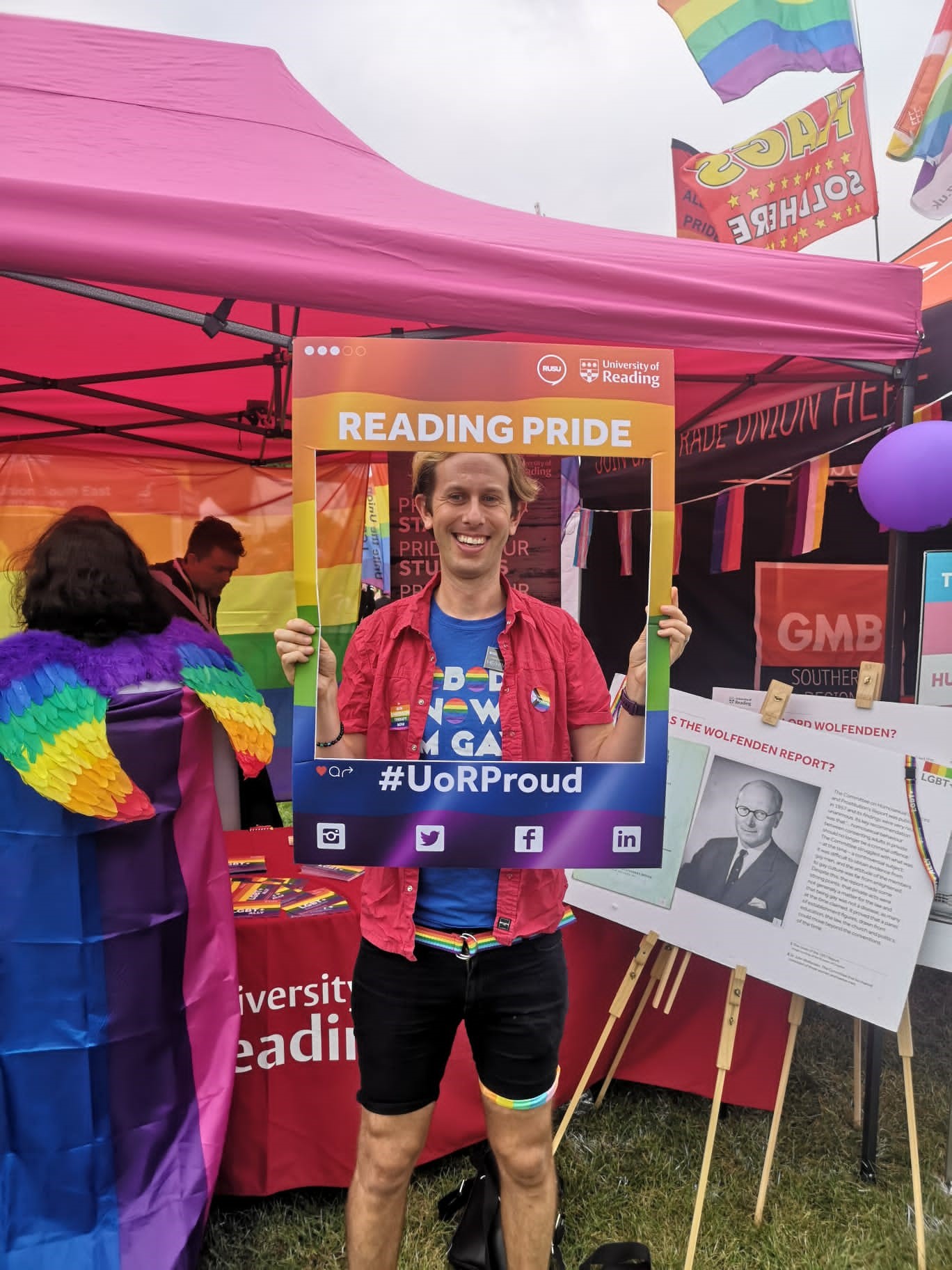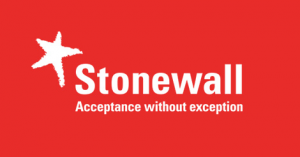LGBTQIA+ History Month is an annual period marking LGBTQIA+ achievements, challenges, campaigns and rights, with reflections on past and continuing discrimination, ostracization and othering. Founded in 2004 by Schools OUT UK Co-Chairs, Paul Partick and Professor Emeritus Sue Sanders, LGBTQIA+ History Month is observed every February across the UK.
Legal progress in the UK includes the legal decriminalisation of homosexuality in the Sexual Offences Act 1967, the repeal of Section 28 of the Local Government Act (the ‘Don’t Say Gay’ Bill) in 2003, the passing of the Gender Recognition Act in 2004, the inclusion of LGBTQIA+ identities under protected characteristics by the Equality Act 2010, and the passage of the Marriage (Same Sex Couples) Act in 2013.
Although this progress displays positive changes towards a more LGBTQIA+ inclusive society, it must be noted that legal changes do not necessarily beget social and cultural acceptance. The unfortunate reality for many LGBTQIA+ persons is not as comfortable as these progressions would suggest. Of the 145,214 hate crimes recorded by police in the year ending March 2023, there were 24,102 hate crimes recorded on the basis of sexual orientation. Meanwhile there was an 11% increase in hate crimes recorded against transgender persons to 4,732 within the same time frame (see: UK Hate Crime Stats 2023 – GOV.UK). Despite these shocking figures, in April 2023 the UK Government and the Law Commission agreed that sex or gender should not be added as a protected characteristic in the reform of hate crime laws, for the purposes of aggravated offences and enhanced sentencing (Government response to recommendation 8 of the Law Commissions’ review of Hate Crime Legislation – GOV.UK).
These realities and lived experiences of LGBTQIA+ persons are precisely why LGBTQIA+ History Month is so important to observe. It is a chance to celebrate past triumphs, but also facilitates opportunities to consider, organise and mobilise regarding current LGBTQIA+ concerns. LGBTQIA+ History Month is for everyone! Whether you identify with any of the LGBTQIA+ communities, are an Ally, or love someone who is part of an LGBTQIA+ community.
The University of Reading has a rich history of LGBTQIA+ support and campaigning, including our previous Vice-Chancellor Lord Wolfenden’s contributions to the decriminalisation of homosexuality in 1957 via the Wolfenden Report. The LGBTQIA+ Staff Network was established in 2014 and has since been growing from strength to strength to support our full-time, part-time, and sessional staff, including postgraduate researchers.
The University of Reading’s Diversity and Inclusion Team, Events Team and LGBTQIA+ Staff Network would like to thank all speakers, contributors, organisers and support staff who helped to make our most comprehensive and inclusive LGBTQIA+ History Month to date possible. A special thank you to the Creative and Print Services for all of the marketing materials, and the Communications Teams for assisting us with advertising and capturing each of the events. The 2024 LGBTQIA+ History Month calendar was packed with a wide range of events – meaning that there was something for everyone – from social events, to training sessions, to a series of talks and seminars, and of course our flagship Wolfenden Lecture!
Starting LGBTQIA+ History Month off with opportunities to mingle and connect, we had a range of social events. Firstly, we had a series knitting and crochet sessions where attendees could learn to knit or crochet an LGBTQIA+ flag of their choice. These sessions were aimed at both beginners and people showcasing their talents. Next we had drop-in sessions with the LGBTQIA+ Staff Network which ran throughout the month. This was a chance for people to sign up for the network, as well as for members to come down and meet us (and each other), make anonymous suggestions for the Network, and collect merchandise. We also had a screening of the film Pride (2014) in our impressive Minghella cinema auditorium, with popcorn and networking to follow. As well as these social events, the Students’ Union hosted a suite of events throughout the first week of LGBTQIA+ History Month, including clothes donation and swapping, a fashion show, gender-affirming makeup workshops, a queer friendly sexual health information session, games and club nights, and a queer academic networking advice event.
Regarding training for LGBTQIA+ History Month, the Diversity and Inclusion Team ensured that the LGBTQIA+-orientated training we run was available to attend. Starting with the Allyship Training, delivered by Dr Michael Kilmister (LGBTQIA+ Staff Network’s Lead Ally), and Ceara Webster (Diversity and Inclusion Advisor), which covers definitions of allyship and how to be an effective LGBTQIA+ ally in the workplace. Next came our Bi Inclusion Training, delivered by Professor Al Laville (Dean for Diversity and Inclusion) and Gabe James (RSU Inclusion and communities Officer), which explores lived experiences of understanding Bi+ identities, mental health outcomes for Bi+ persons, and how to navigate Bi-erasure, biphobia and Bi+ allyship. Finally, we had Trans Awareness Training, delivered by Christian Owens (GenderSpace), which reflected on Christian’s own personal journey as a transgender speaker, focused on empathy and greater understanding of transgender people. All future Allyship, Active Bystander, Bi Inclusion and Trans Awareness Training dates can be found on UoRLearn.
We also had a collaboration with the University of Reading’s library, which collated LGBTQIA+-orientated resources. These resources were signposted all month to ensure that interested parties could stay informed.
We hosted a range of talks from speakers contributing to the positive work in LGBTQIA+ spaces. These talks began with the Research Showcase, which featured talks from Eleanor (Ellie) Benford (MSc Student in Cellular and Molecular Neuroscience) and Gabbi Wallace (PhD Student in Film and Theatre). Ellie delivered a talk on her work supporting the LGBTQIA+ community through a three-part event focused on the past, present, and future of LGBTQIA+ experiences through challenging disciplinary stigma created by the pathologizing of LGBTQIA+ persons in the discipline of psychology. Gabbi delivered a talk on her PhD project involving representation of transgender people in testimonial performance and digital film.
Secondly, we hosted the ‘Bowie Love’ Lecture, delivered by Professor Alex Sharpe (School of Law, University of Warwick). This audio-visual talk explored how the work of David Bowie embodies love, covering the three love lessons of: letting go, humility, and posthuman/ queer love. The talk was focused on the notion love is linked to freedom, and included music and iconography from Bowie’s catalogue. This in-person lecture was well-attended, including by many members of the public, some of whom reflected on their life experiences seeing Bowie perform and how they relate to his music.
Next we had the Micro Rainbow talk, delivered by Moud Goba (LGBTQIA+ Activist and National Director of Micro Rainbow). This talk was hosted in collaboration with the University of Reading’s Black, Asian, Minority Ethnic (B.A.M.E.) Network, and focused on the work of Micro Rainbow – an organisation dedicated to supporting LGBTQIA+ asylum-seeking refugees by promoting social inclusion, increasing employability, and providing safe housing to those arriving in the UK.
We also had an insightful talk titled ‘Beyond Liberation or Assimilation’, delivered by Professor Jonathan Bell (UCL). This talk was focused on the history of identity politics and struggles for bodily autonomy in the United States, including debates over access to funds and care, how consumer rights have shaped the terms of identity politics and the social disparities within the gender rights movement.
Returning this year, we had the LGBTQIA+ UK Asylum Workshop organised by Dr Ruvi Ziegler, followed by rehearsed readings of queer asylum-seekers testimonies – a theatre act called ‘This is who I am’ . The performance by the theatre group ‘Ice and Fire’ UK gave the audience a glimpse into the lived experiences of LGBTQIA+ persons escaping persecution and trying to navigate the UK asylum system. These testimonies explored themes such as sexual and physical violence, isolation, and mental health challenges.
To conclude this series of talks, we had a seminar hosted by the School of Mathematics, Physical and Computational Sciences (SMPCS). This talk was organised by Dr Fazil Baksh, and featured talks from Dr Luciano Rilla (School of Mathematics, UCL) and Maya Carlyle (National Physical Laboratory). Luciano delivered a talk on the lived experiences of LGBTQIA+ persons despite legal progress, and the development of the first UK ‘GaySoc’ at UCL in 1972. Maya delivered a talk on navigating the STEM disciplines and the tech world as an openly transgender woman.
In the lead up to our flagship Wolfenden Lecture, for 2024 we reintroduced the Wolfenden Seminar, aimed at showcasing the LGBTQIA+-orientated work developed within the University of Reading. The Wolfenden Seminar was delivered by Dr Frances Hamilton (Associate Professor, School of Law) and Tahlia-Rose Virdee (PhD Student, School of Law) on their creation of the LGBTQ+ International Travel Tool – an interactive tool with personalised outputs for each user to refer to as a basis for improving the quality of LGBTQIA+ safeguarding for colleagues in their institution travelling internationally. This talk also included guest speakers reflecting on the state of international LGBTQIA+ rights and recognition, and their support for the tool; Seth Atkin (University and Colleges Union), Dr James Greenwood-Reeves (School of Law, University of Leeds), Professor Richard Harris (School of Education, University of Reading), and Dr Ruvi Ziegler (School of Law, University of Reading).
Our flagship LGBTQIA+ event at the University of Reading, the Annual Wolfenden Lecture, was delivered by Dr Sophie Cook. Sophie is a writer, speaker, actor, broadcaster, photographer and author, as well as being an LGBTQIA+ and mental health campaigner. In her moving address, Sophie shared her life story and experiences of navigating the world and her work in Premier League Football as a transgender woman, including experiences with mental health and discrimination. Her talk navigated the difficult terrain of self-loathing and risk of self-harming leading to self-acceptance. In the Q&A that followed her talk, Sophie offered words of encouragement and advice to young LGBTQIA+ persons facing similar challenges and emphasised the need for the university to be a space of inclusion and community.
You can see a short video of reflections on the Wolfenden Lecture and LGBTQIA+ History Month 2024.
We hope to see you next year!
All the best,
The LGBTQIA+ Staff Network
X: @UniRDG_lgbtplus
Facebook: https://www.facebook.com/UORLGBT
Email: lgbtplus@reading.ac.uk



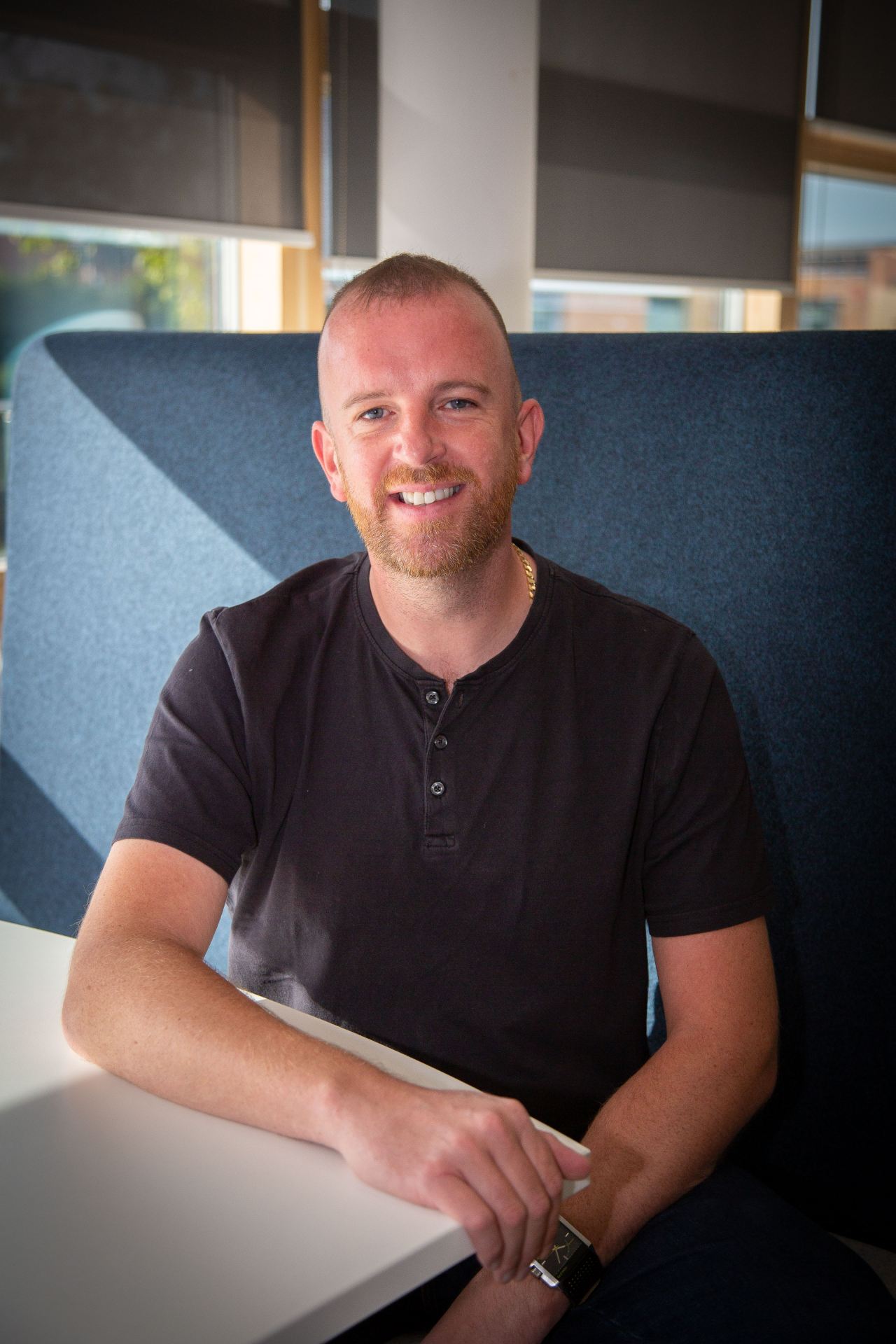 Drew Dalton (He/Him) is a Senior Lecturer in Sociology and the Programme Leader for the MSc Inequality and Society at the University of Sunderland. Drew has significant industry experience in the Third Sector, human rights, HIV and AIDS, and in education. He has been Chair of several organisations including those that have highlighted LGBTQI+ histories, working with people living with HIV, and those that support LGBTQI+ Muslims. Currently he is the Founder and Chair of ReportOUT, an award-winning global human rights charity for sexual and gender minorities across the globe. Drew is a proud bisexual man.
Drew Dalton (He/Him) is a Senior Lecturer in Sociology and the Programme Leader for the MSc Inequality and Society at the University of Sunderland. Drew has significant industry experience in the Third Sector, human rights, HIV and AIDS, and in education. He has been Chair of several organisations including those that have highlighted LGBTQI+ histories, working with people living with HIV, and those that support LGBTQI+ Muslims. Currently he is the Founder and Chair of ReportOUT, an award-winning global human rights charity for sexual and gender minorities across the globe. Drew is a proud bisexual man. On 17 May 2023, we raised the rainbow flag to mark
On 17 May 2023, we raised the rainbow flag to mark 




